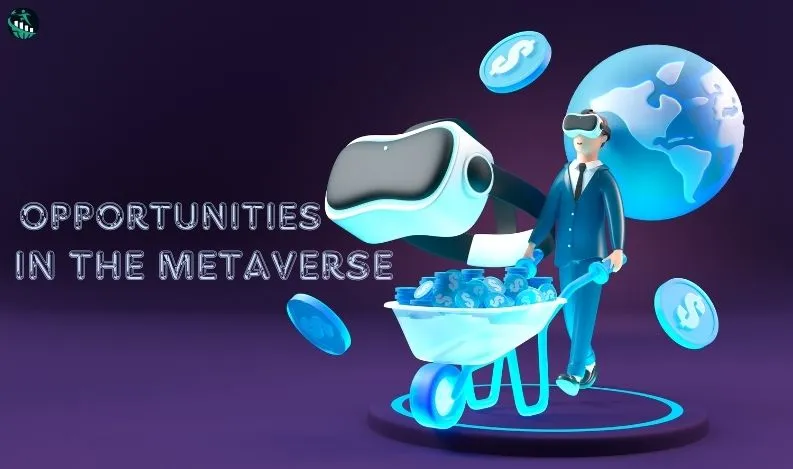
Unveiling the Economic Horizon: Opportunities in the Metaverse
The Metaverse, a term that conjures images of vast, interconnected virtual spaces, is more than a buzzword; it's the frontier of digital interaction, commerce, and innovation. As we stand on the precipice of this digital renaissance, the economic implications and opportunities within the Metaverse beckon businesses, entrepreneurs, and visionaries to explore and cultivate its untapped potential.
The Bedrock of the Metaverse Economy
Digital Real Estate: The Virtual Land Rush
In the Metaverse, space is not infinite. Digital real estate, represented by parcels of virtual land on platforms like Decentraland and The Sandbox, forms the foundation of the Metaverse economy. These digital plots are more than mere pixels; they are platforms for building, hosting, and monetizing virtual experiences, events, and communities. The surge in demand for these virtual spaces underscores their potential as a lucrative investment and a canvas for creativity.
Virtual Goods and Avatars: The Currency of Identity
The Metaverse economy thrives on the creation, exchange, and consumption of virtual goods. From bespoke avatar outfits to unique digital artifacts, these items are not just commodities; they're expressions of identity and status within virtual worlds. This segment of the Metaverse economy opens avenues for designers, artists, and brands to tap into a market that blends creativity with digital consumerism.
Decentralized Finance: The Metaverse Monetary System
Cryptocurrency and blockchain technology underpin the Metaverse's financial infrastructure, facilitating transactions that are secure, transparent, and borderless. This decentralized financial system supports a bustling economy, from NFT marketplaces to virtual asset trading, offering a glimpse into future financial models that are inclusive, efficient, and untethered from traditional banking systems.
Transforming Industries Through Virtual Innovation
Gaming and Entertainment: Beyond Play
The gaming industry, a pioneer in the Metaverse, illustrates the seamless blend of entertainment, community, and commerce. Titles like Fortnite and Roblox have evolved into sprawling virtual ecosystems where millions engage, create, and transact. The economic model of these platforms, where virtual goods, services, and experiences drive revenue, foreshadows the broader potential of the Metaverse economy.
Education and Professional Development: The Virtual Campus
The Metaverse redefines educational and training paradigms, offering immersive, interactive experiences that transcend physical classrooms. From virtual reality medical training to corporate workshops in digital twin environments, the Metaverse presents a frontier for knowledge dissemination and skill acquisition, with vast economic implications for educators, institutions, and technology providers.
Retail and Fashion: Dressing the Digital Self
The confluence of fashion and the Metaverse marks a significant shift in retail. Virtual stores, avatar fashion lines, and digital wearables open new revenue streams for traditional brands and digital creators alike. This fusion of industries not only expands the market for virtual goods but also sets the stage for a new era of fashion, driven by digital innovation and virtual consumer experiences.
Real Estate and Workspaces: Redefining 'Location, Location, Location'
As remote work becomes the norm, the Metaverse offers virtual alternatives to physical offices and workspaces. These digital environments provide companies with the opportunity to design interactive, branded spaces for collaboration, meetings, and community building. The economic impact extends beyond the real estate paradigm, influencing how businesses invest in and value digital presence and infrastructure.
Innovative Business Models Emerging from the Metaverse
Play-to-Earn: Gaming with Economic Rewards
The play-to-earn model, epitomized by games like Axie Infinity, disrupts traditional gaming economics by allowing players to earn real-world value through gameplay. This model not only enriches the gaming experience but also introduces a new economic dynamic where time, skill, and participation in the virtual world have tangible financial rewards.
Virtual Events and Experiences: The New Venue for Engagement
The Metaverse reimagines event hosting, from concerts and conferences to exhibitions, in expansive virtual venues. These events transcend geographical limitations, offering immersive experiences that can attract larger, more diverse audiences. The economic potential for organizers, sponsors, and creators is vast, heralding a new era for the events industry.
Digital Twin Technology: Bridging Realities
Digital twins, virtual replicas of physical entities or systems, exemplify the Metaverse's utility beyond entertainment and social interaction. Industries such as manufacturing, urban planning, and healthcare leverage these virtual models for simulation, analysis, and remote operation, opening new avenues for efficiency, innovation, and revenue generation.
Navigating Challenges and Considerations
While the economic opportunities in the Metaverse are vast, they are accompanied by challenges, including regulatory uncertainties, privacy and security concerns, and the digital divide. Addressing these issues is crucial for fostering an inclusive, secure, and thriving Metaverse economy.
Conclusion: The Future Is Virtually Unlimited
The Metaverse presents a new economic frontier, rich with opportunities for innovation, investment, and growth across various industries. As we venture into this digital expanse, the potential for transforming traditional economic models and creating new value streams is boundless. The journey into the Metaverse is an invitation to reimagine the future of commerce, community, and creativity.
Also Read:-



Recent Comments: